It wasn’t from the numerous bulges in the small of men’s backs (which I realized were guns) as we loaded ourselves onto the bus to Río Dulce like cattle. I just rationalize that this is a natural reaction of people for their own safety from gangs in light of the fact that 80% of all drugs in the

I wasn’t scared for my life from the eerie sounds of howler monkey calls that woke me from a dead sleep at the jungle hotel. (They are so loud the sound can carry for three miles!)

It wasn’t from the horse which I lost control of and nearly bounced me off as it ran unevenly at full pace over a steep hill on the 500 acre finca (farm). I got a hold of him and pulled back hard on the reins, and readjusted the uneven saddle. We gave the horses (and ourselves) a break and walked through part of the jungle canopy tour on elevated bridges a hundred feet above the creek. Then we climbed the stairs to the top of a tower that looked out over the lake and vast farm.
I wasn’t scared for my life from the two hour motor boat ride from

It wasn’t from the washed-up four feet long snake which I nearly inadvertently stepped on at the beach or the dead sea-turtle and numerous jellyfish. The beach at Lívingston was littered and dirty, but still beautiful. And our trip to Siete Altares, a series of seven waterfall pools did not disappoint. There were tons of locals cliff diving into the biggest pool, and after the long humid walk to the spot, I didn’t care that I had no swimsuit and jumped in with jeans and bra. The cold water was fantastic and the sunlight was beautiful as it filtered through the trees and sliced a few beams of light through the water. As we got out of the pool to dry off, we (Laura, Chrissy, Kendal and I) couldn’t help but laugh at the prepubescent machismo of a group of five 12 or 13 year old boys. So far the four of us have all experienced enough cat-calling, whistling and hissing to fill Santa’s goodie bag three times, but not from children! One boy swam over to us and asked me where I was from, and then commented that my physique didn’t look like I was from America, more like I was from Australia - as if he was an expert in the female form! As he and his friends blew us a parting kisses, I caught one, looked at it, and let it slip out of my fingers into the stream and they all burst out laughing. At least at this age, they can laugh at rejection – I’ve gotten a few angry stares from men when I react with anything but passive ignorance (which BELIEVE me is a test to my will-power every time).

It wasn’t from following the overly-gregarious and slightly-shady man who led us to “da-best dance-club-on-da-beach-don-worry-I-show-you.” It turned out to be a legit club right on the beach with locals, Guatemalan travelers, one other Gringo and traditional punta dancing (think hips and knees). The shady man of course wouldn’t leave until we fulfilled his demands of payment for his services, but it was an incredible experience. In the middle of the dance floor a local guy grabbed a glass coca-cola bottle (Laura said it right: You can count of taxes, death and coca-cola) and spun it as the entire club circled around and individuals were picked to dance alone in the center. Everyone participated and danced regardless of who they were, male or female, and everyone was immediately shuffled from their groups – blacks standing next to indios standing next to ladinos standing next to gringos. Everyone watched and laughed and no one was made to feel better or worse than the last who danced (and let me tell you that this is remarkable seeing that white-man syndrome seems exist everywhere – Not to perpetuate a false stereotype, but - why do white men have no rhythm? And why do black men have it so naturally?).
I wasn’t scared for my life from the packs of dogs which snarled threateningly at us as we walked home in the deserted night streets after dancing my feet into oblivion.

I wasn’t even scared for my life from the remains of three completely decimated semi trucks that we passed as we barreled and dodged cars along the windy cliff-lined roads back to Antigua (although maybe I should have been). We chose to get a private shuttle, because our experience on the public bus to Río Dulce took a 5 hour trip and turned it into an 11 hour trip. We stopped every half hour to stockpile more bodies into the main isle (we were incredibly lucky to have assigned seats) and to refuel by holding the gas can with funnel higher than the tank. The family that drove us back in our private shuttle was adorable. I don’t know how the husband was able to put up with the crazy antics of the drivers around him knowing that his young wife and year and a half old son were sitting in the seat next to him. I commend anyone who is able to safely drive in a third world country, and even more I commend the small children who so patiently sit there against their will without crying or fussing. The little boy was adorable. His sweet face and smile reminded me of my cousin Dillon, only with light brown eyes instead of piercing blue ones.
None of these things are what scared me to the core.
No, it was after the incredible weekend to the river town of

And what’s more frightening, and this sounds absolutely terrible in every possible way, but if something like this were to happen and I did survive, I would be reduced to the same level of helplessness and immobility as the people here. I would not receive special medical attention, the American embassy would not come and save me, and my money wouldn’t even help me. The bubble of safety which my skin tone, nationality and wealth quite normally afford me would disappear and I would truly know what it is like to be in an impoverished state. But even this would be temporary, because I would be able to return to the security and wealth of my homeland and leave the desolation behind me. I understand now why 1/5 of the Guatemalan population lives in the
Just to give you a picture of what I am referring to, my guide book summarizes the grim facts saying; “A Guatemalan maya can expect to live a life of 48 years, and a ladino to live to 66.” What is the difference between a maya and a ladino? Skin tone and language. Maya are indians speaking Mayan languages and a landino is everyone else. To give you a face to this statistic, my host mother Victoria (a ladino) is 57, and like I wrote before, her body is that of a 70 year old; she went yesterday to the dentist and had five teeth pulled that were falling out of her jaw. According to this statistic, she has 9 years left. The book goes on to say, “these statistics are some of the very lowest in the world, rivaling only those of AIDS-ravaged sub-Saharan Africa and
I am acutely aware that I am always separate from these people. I can only look into their lives from an outside perspective and never really understand what it is like to be in their shoes. After traveling to some of the most impoverished countries in the world, I sort of feel like all travelers to third world countries are spectators to a sort of poverty zoo. We go to see the culture (*with a little c), people and places not realizing how separated we are from the people we are standing right next to. For example, after only four weeks in
In Lívingston, I had a two hour conversation with Ignacio, a guy my age who worked at the hotel. I asked him if he had ever been to
I guess that is where I am right now. I feel the weight of all those around me and it isn’t a load that a single person can lift on her own. I feel the internal pressure of wanting to DO something, but what can one person possibly do that hasn’t already been thought of by the people who live here everyday? I suppose that writing these anecdotes and sharing my experiences with you all could help in some minute way. Ultimately, I guess it comes down to the fact that their will always be suffering in the world, and conversely there will always be joy. Like I said before, these people have nothing but eachother throughout their short lives and yet maintain a sense of appreciation, hope and gladness. Or so I perceive. I just wish that those who have so much more time and wealth would realize their gifts and fully appreciate the auspiciousness of their bounty; because the rest of the world surely does.

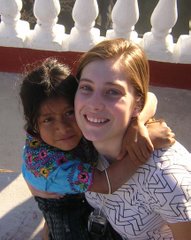

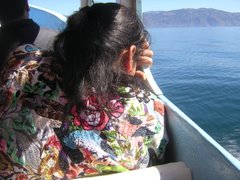


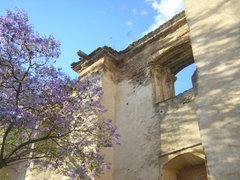
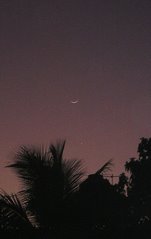
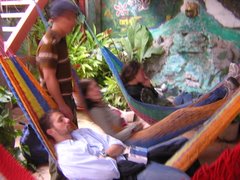
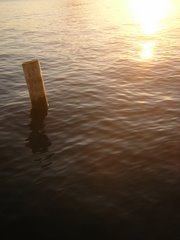

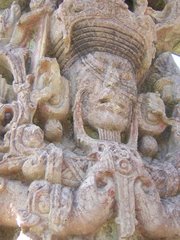
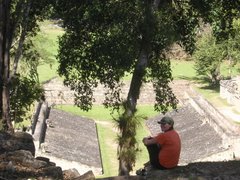
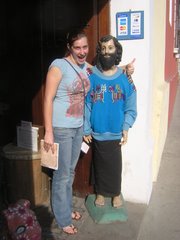
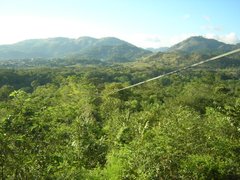
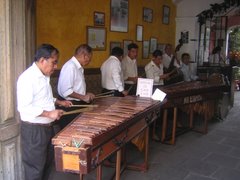
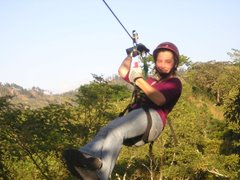
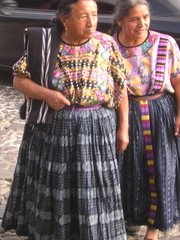

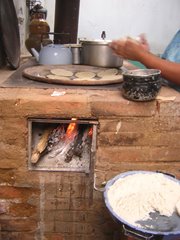
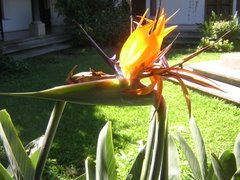
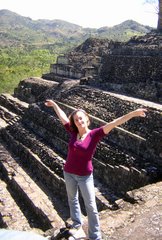
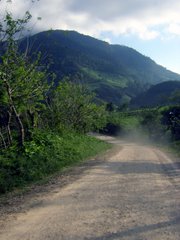
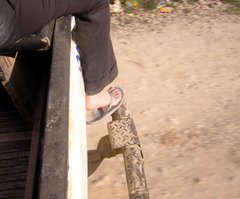
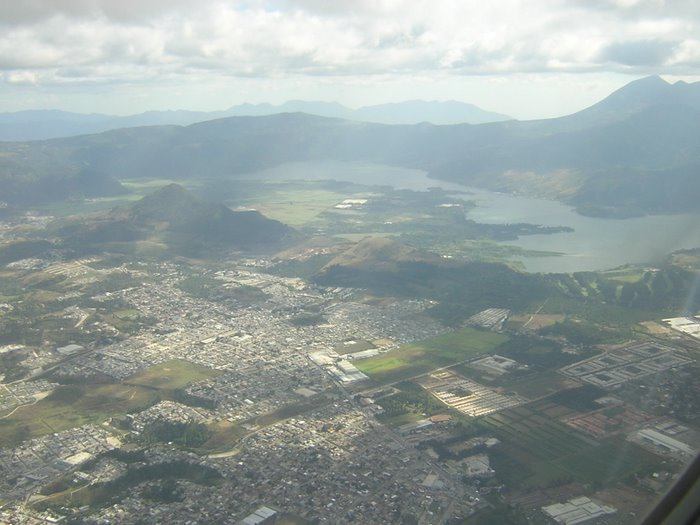
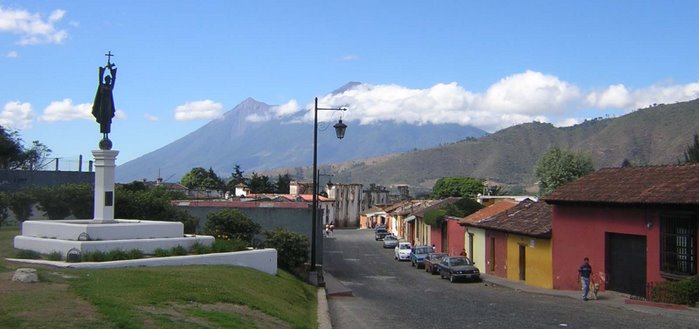
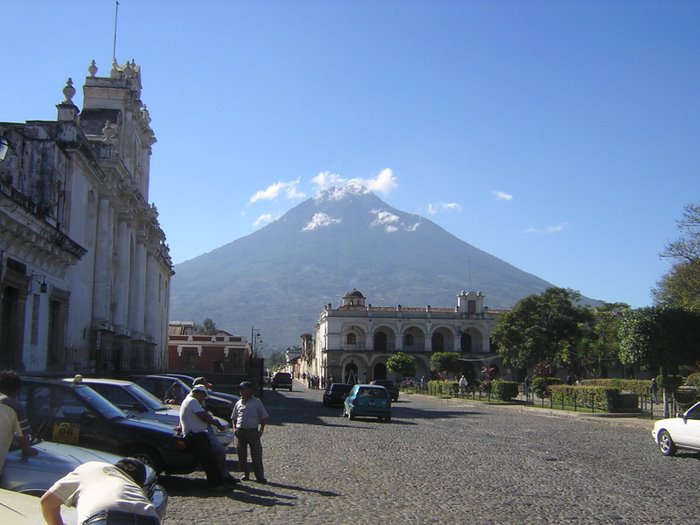
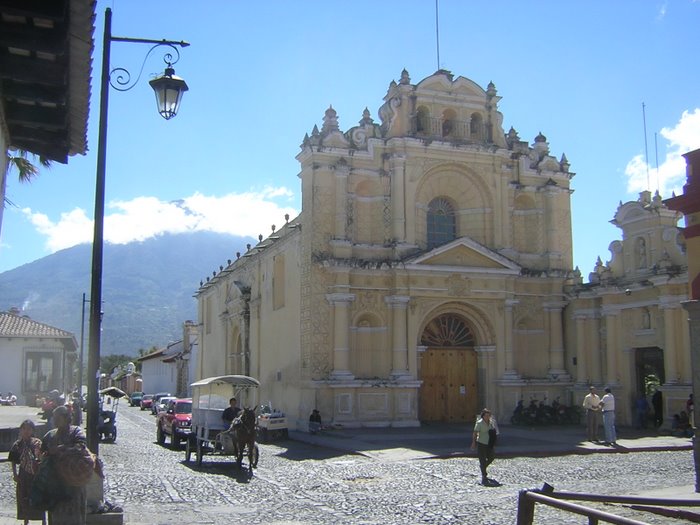
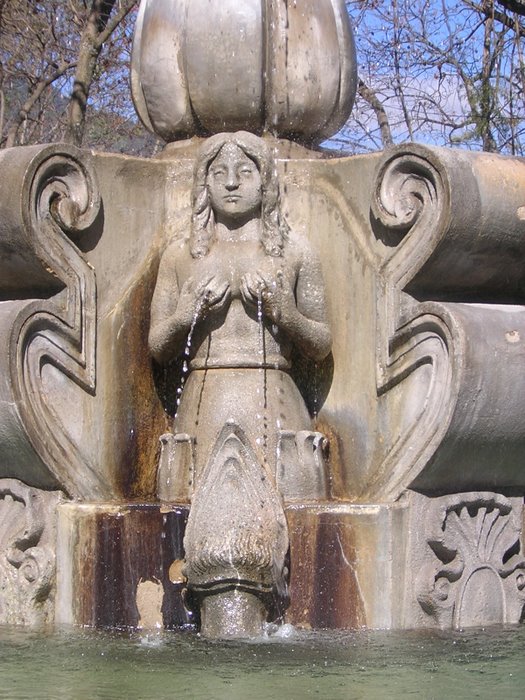
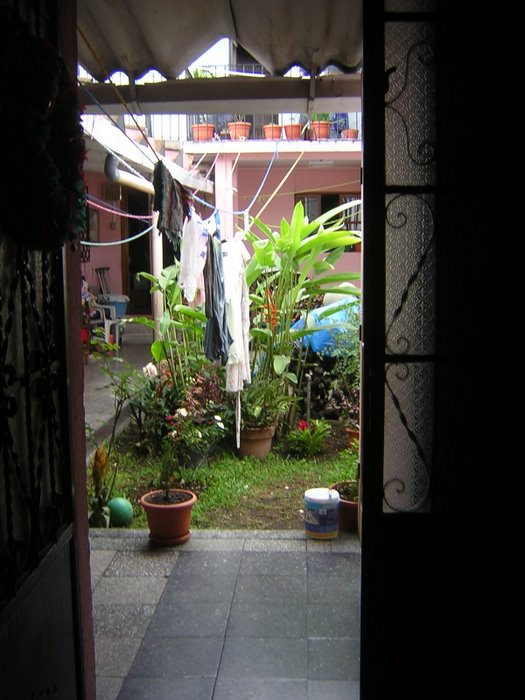
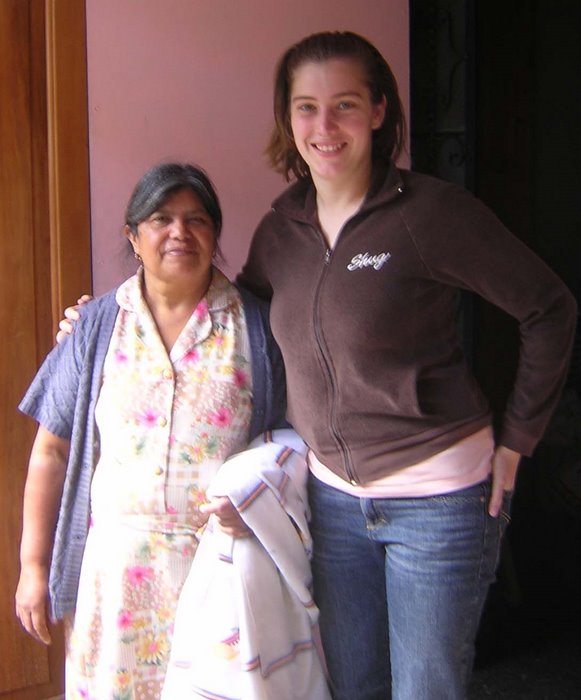

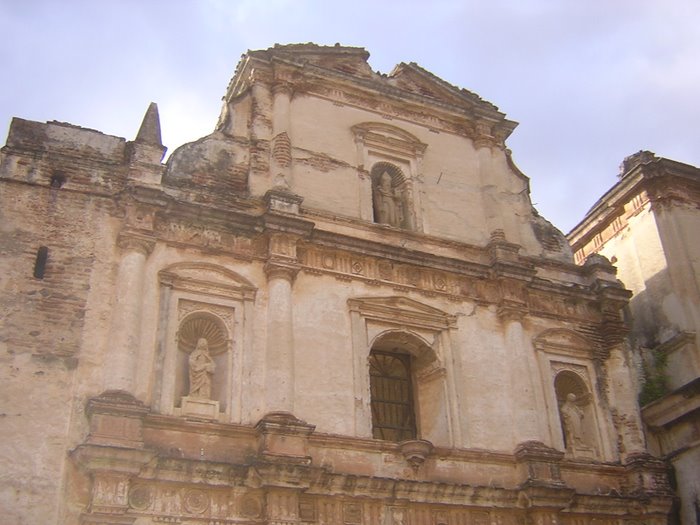
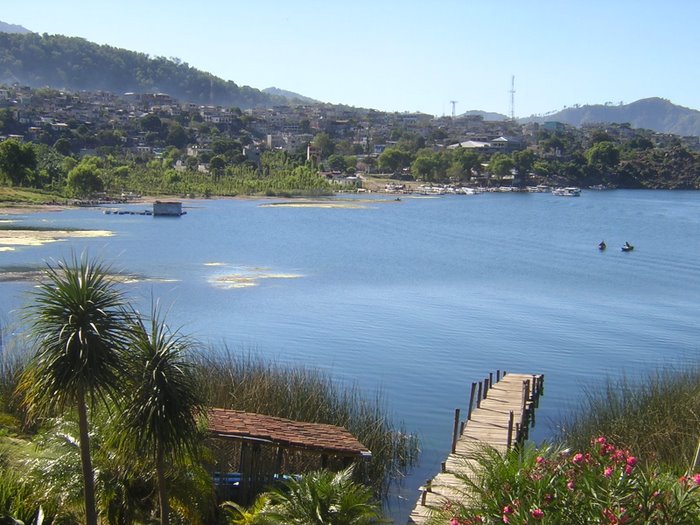
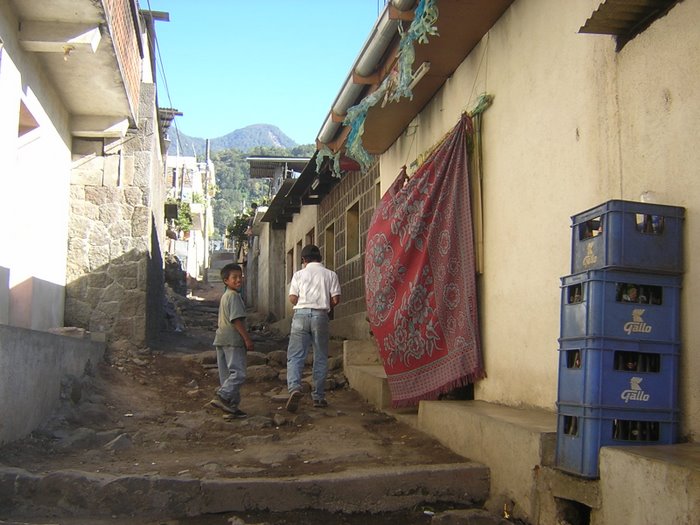
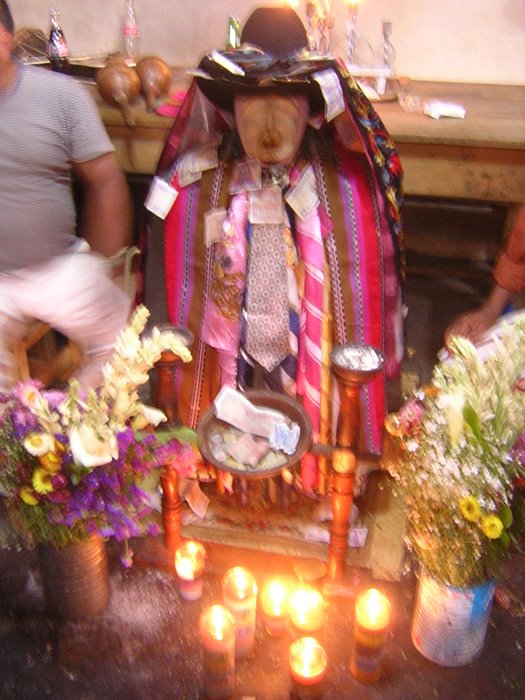

4 comments:
Even though I've never been to the places that you have, I understand what you're saying. Those few months in Huatulco made me feel the same way. Except you've written it beautifully. We sit here on our computers day in and out, whining about how tired, busy and overwhelmed we are with life. All we have to do is stop, step back and think about what it is we're complaining about. NOTHING. Most people in this country have never seen what you have seen and will never realize how lucky they are. But what if they did see what the rest of the world deals with. Do you think it would make a difference? Would people jump up, forget their self pity and do something to help?
Sorry, I'm blabbling now :) Bonnie I am so glad to call you my friend. You really are an amazing person. I love you very, VERY much. Please call me when you get back. I can't wait to see you :)
- Steph
I know I'm not supposed to post without reading this, but I don't have enough time to read this before my jefe gets back! So I will just say that I love the photos, especially of the puppy sleeping. I love you! Have fun. I'll read this all tonight.
Hey Bonnie!
Wow, it seems you are having the greatest times over there!
But what caught me in this adventure, is about tourists going to the third world and making the people there as zoo?!?!
That's really bad, you know a lot of time i wonder, why would someone from the so called first world, wanna come to study in an university in a poor third world country?? I don't know, but what Iam sure is, they only come for adventure, take photos, go out, having fun and at the end of the day, they go back to their first world with tons of pics and stories!! I think, they should start thinking about how to help the third world folks from escaping poverty!! And I know you have good heart and you are not like those other first world folks who go to the third world for adventure only, but it's true you can't make a difference on your own, you needs hands of other folks, like Jennifer, who she is really cool, you know she will coming to TZ in march, and she is on this program, i don't yet what is it about, but that's a good thing to start with.
Okay, Iam sorry if Iam blabbling, but that's the fact.
Poa? Guess I have talked much, take care and have great time over there.
Tutaongea tena baadaye..... rafiki yako.... Mathayo.
Wouldn't it be cool if travel books described places as you have? Not just what it has to offer tourist-wise but to a person's life/perspective. Travel-books with a broader consciousness. You could certainly write like that. And your photography is certainly up to par. Don't worry I'll be your agent. :)
But even though the attitude of rich tourists may not always be selfless when they visit impoverished places, even though they're not directly donating the thousands they spend to travel so far. Tourism in many ways helps such economies. Perhaps it's not enough, but it's something. And you're part of that help at the very least. So when you say you can't fix it all alone, you can take comfort in that your presence, or rather the money that follows your presence, is indeed helpful. So buy lots of souvenirs! LOL
I don't know your other commenters were so negative....
I got your card! I'm writing back.
Post a Comment